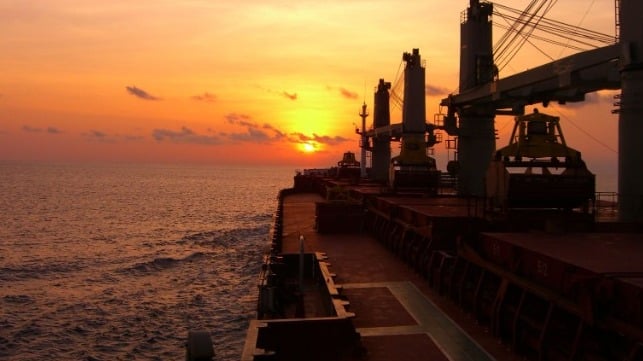Charterers Attack BIMCO's CII Approach in Struggle for Decarbonization

The shipping industry continues to struggle with the best approach for incorporating the IMO’s new initiatives for efficiency and carbon indexing ratings for ships and where the responsibilities lie for the new rules. Individual shipping companies have criticized the IMO’s new Carbon Intensity Index (CII) while shipping associations have also called for changes. Now a group of 23 leading shipping companies, including the largest container carriers and bulk operators, have turned their ire on BIMCO, the industry trade association, after the group released draft guidance in the form of a contract clause for shipping companies to adopt.
At issue is the role of the charterer versus the owner of vessels. BIMCO in its guidance placed the majority of the responsibility on the charterer writing a contract clause based on the belief that the charterer would determine the ship’s performance. BIMCO said in releasing its guidance that the charterer should take responsibility for a ship’s emissions because the charterer makes the relevant decisions on the operation of the ship. When entering into the charter party, or incorporating the clause into an existing charter party, BIMCO recommended that the owner and charterer agree on a specific CII to be achieved each year.
In an open letter to the trade group, the shipping companies call BIMCO’s clause “imbalanced and unusable.” While saying that they recognize that the efforts to decarbonize shipping require proactive involvement from all sides, the letter asserts that BIMCO’s clause places the obligation to comply with the IMO’s Carbon Intensity Index (CII) disproportionately on charterers. They write that “shifting CII requirements disproportionately to charterers is detrimental to achieving a good outcome for each individual vessel.”
The group writes that BIMCO failed to strike the right balance and enhance collaboration between vessel owners and charterers to lower greenhouse gas emissions. They say the result will likely lead to a wide variety of homegrown CII clauses in charter contracts, to the owners’ detriment, or that no clause will be agreed upon.
“In circumstances where charterers’ employment orders are only partly responsible for the CII rating, this group does not accept taking wholesale responsibility for compliance with the regulations,” the letter asserts. They note that the majority of the signatories, which include MSC, Maersk, CMA CGM, and Hapag-Lloyd, as well as Norden, Oldendorff, Stena Bulk, Trafigura, and others, are both owners and charterers.
As charterers, they recognize the importance of this topic and will continue to act in this regard, but they say that there must be a close collaboration between owners and charterers. “Owners remain equally responsible for maintaining the vessel’s operating efficiency, technical operations, navigation, insurance, crew, and all other related matters,” they assert in the letter citing a long list of measures available to owners to optimize fuel consumption beyond those of the charterer. They include retrofits, engine or vessel management techniques, fuel additives and lubes, and crew training, among others.

that matters most
Get the latest maritime news delivered to your inbox daily.
BIMCO responded to the initiative by thanking members for their input saying that the organization “understands that many stakeholders are still struggling to interpret the complexities of the CII regulation.” BIMCO says it will continue to monitor developments as the CII regulation enters into force and will work with the industry to aid with how to understand the CII regulation.
This latest struggle is symptomatic of the broader challenge to adapt the way the industry does business in the next few years to meet the new regulatory initiatives and the ultimate challenge to change shipping to meet the goals for reducing carbon emissions.
